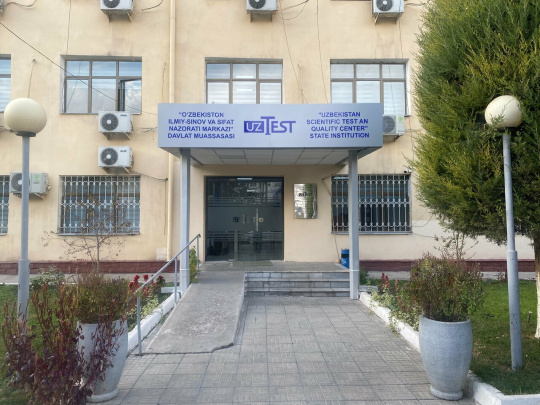Economist: Special economic zones have become a means of extracting benefits in Uzbekistan
14 new special economic zones can be established by March 1, 2023. Then their total number will reach 36. Entrepreneurs in these zones are exempt from property, land, water resources and profit taxes for up to 10 years. “If 100 more enterprises in each region do not pay taxes, ownerless small businesses and the ordinary people will bear the burden,” an economist Otabek Bakirov says.
The draft resolution of the President “On measures for the establishment of large special economic zones” was announced.
By March 1, 2023, the decision envisages the establishment of 100 large special economic zones for enterprises in each region with all conditions and infrastructure for business.
The following are defined as the main tasks and areas of activity of large special economic zones:
• attraction of direct foreign and local investments for the organization of modern productions for producing products with high added value that are demanded in foreign markets and replace imports;
• ensuring comprehensive and effective use of production and resource potentials of the region;
• deepening the processes of localization of production of high-tech products based on the establishment of strong cooperation relations based on local raw materials and materials and the development of industrial cooperation among the participants of the special economic zone and in the republic as a whole;
• expanding the production of agricultural products, deepening processing and increasing their export volume based on the effective use of regional production and resource potential;
• formation of a modern infrastructure for the provision of logistics services, assistance to production entities in the industrial sector in organizing the export of products produced by them;
• organization of research and production centers in accordance with international standards for standardization, certification and marking of produced products and implementation of measures to ensure that their conclusions are recognized at the international level;
• based on the current and prospective needs of special economic zones for personnel, to organize training of highly qualified specialists, to participate in their production practice in organizations located in special economic zones.
According to the Minister of Investments and Foreign Trade Jamshid Khodjayev, 22 special economic zones specialized in industry, agriculture, pharmaceuticals and tourism have been established.
Entrepreneurs operating in these zones will be exempted from property, land, water resources and profit taxes for up to 10 years.
“We will continue to improve such conditions in order to become one of the most advanced in the region in this direction, and thereby create a more favorable environment for attracting new investors,” Khodjayev said.
Will the tax burden that the zone participants do not pay fall on others?
Economist Otabek Bakirov writes that special economic zones have become a means of extracting benefits.
“It is easier for big business to get individual benefits from the government than to achieve results through cost reduction or market competition. A complete inventory of special economic zones and their residents is necessary. It’s time to measure the value of benefits and the results. The state should not be concerned with production or job creation, but with infrastructure and competitive environment. The height of the tax burden does not depend on the current tax rates. Reduction of VAT in the conditions of monopoly will not lead to lower prices, it will only increase the monopolist’s margin,” he said.
Bakirov added that if 100 more enterprises in each region receive tax breaks, the tax burden will begin to be covered at the expense of small businesses and ordinary people.
“Those who enter special economic zones are exempted from property tax, land tax and tax for using water resources. They also do not pay profit tax on inflated investments. A number of VAT reliefs are provided. A special regime applies for them, which allows them not to pay duty.
Creating special economic zones and becoming their residents has already become a source of corrupt income. Failure to meet zone residency criteria has become a seventh-level issue. This should be agreed, that’s it.
If 100 more enterprises in each region do not pay taxes, who will bear the rest of the burden? Or will we stop giving pensions, paying teachers’ salaries, strengthening the army? Did anyone calculate? If the khokim’s companies, friends and partners don’t pay taxes, naturally, ownerless small businesses and ordinary people will bear the burden,” the economist says.
For information, in 2020, the law “On special economic zones” came into force. According to it, special economic zones are established for a period of 30 years according to the presidential decision.
According to the law, special economic zones can be established in the following ways:
• free economic zones;
• special scientific-technological zones;
• tourist-recreational zones;
• free trade zones;
• special industrial zones.
Last month, it became known that the law “On special economic zones” will be developed in a new version.
Related News

14:07 / 11.02.2026
Uzbek servicemen win gold at IX “Team Spirit” competition in Pakistan

16:05 / 05.01.2026
Gov’t to launch “5 million AI leaders” project to train youth for high-income digital careers

20:53 / 17.04.2025
National Agency for Prospective Projects files police complaint against economist over criticism of Temu ban

17:11 / 15.04.2025



